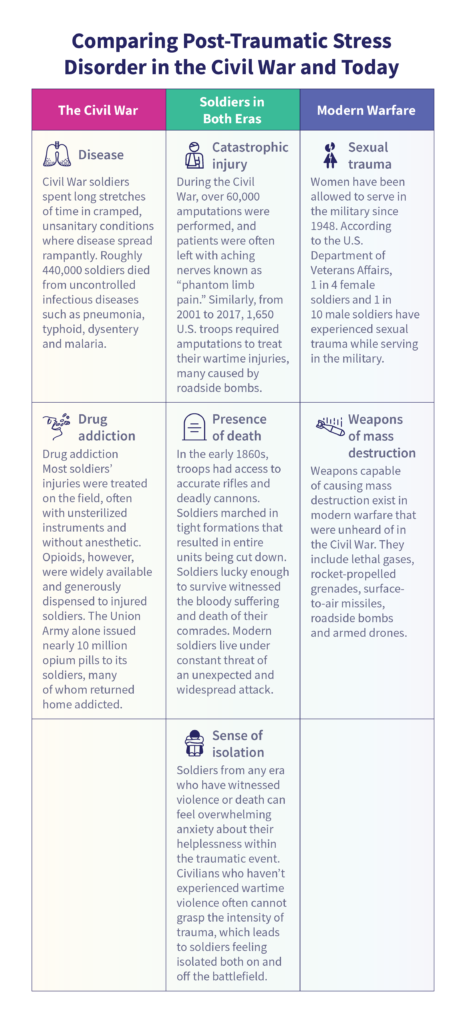Father Comes Home from the Wars Background
Echoes of the Odyssey
The ancient epic the Odyssey by Greek poet Homer (c. 8th or 9th century B.C.) follows the 10-year journey of a hero named Odysseus. He is trying to return to his wife, Penelope, and their son, Telemachus, after a decade spent fighting in the legendary Trojan War. During their 20 years apart, Penelope remains faithful to Odysseus, fighting off 108 suitors who overtake her palace. At the end of the play, Odysseus kills the suitors and reunites with his wife, restoring peace to Ithaca. Although Parks adamantly insists that Father Comes Home from the Wars is “neither riff nor adaptation of the Odyssey,” it’s impossible to ignore parallels between the two stories.
A character named Hero who goes to war may not be enough to establish a parallel, but character names like Penny—a shortened version of Penelope—and Odd-See (Odyssey) are more difficult to ignore. Parks employs a twist on the classic Greek chorus in both the “Less Than Desirable Slaves” in Part 1 and “The Runaway Slaves” in Part 3. Like Homer, she explores themes of fidelity and forgiveness. Perhaps the strongest connections between the two stories, however, are the questions raised about a wartime homecoming. What does home mean when everything has changed? Is home a person, a physical place, a feeling of comfort? Neither text answers these questions directly, but both explore how war changes a man and rocks his emotional foundations and connections to those around him.
Black Confederates
Hero’s position as the Colonel’s servant during the American Civil War (1861–65) may surprise some audiences, but historically, his role was not uncommon. Historians estimate that some 100,000 enslaved men were forced to work in the Confederacy. Most were cooks, teamsters, and manual laborers. Others, like Hero, were valets to their white masters. Hero and most historical men like him were not Confederates by choice. Hero even considers maiming himself to avoid service before ultimately donning the Confederate uniform.
Though historians debate the exact figure, some estimate that a few thousand Black soldiers saw combat. However, they often fought out of fear of retaliation, being enslaved, or losing their status, especially in Charleston, South Carolina, and New Orleans, Louisiana, where free African Americans owned thriving businesses. In New Orleans, 1,500 free African Americans enlisted in the Louisiana Native Guards in 1861, but they were never issued weapons or uniforms. They disbanded in 1862 when the Louisiana State Legislature made it illegal to have Black soldiers join the Confederacy. In 1863, the Louisiana Native Guards reemerged as a Union regiment and fought against the Confederacy. In many cases, those who joined the Confederacy were looking for a means of escaping slavery.
Parks reminds audiences of the Black Confederates’ subordinate status through the Colonel’s horrific treatment of Hero in Part 2. The Colonel weeps about his love for Hero moments after striking him across the face with a riding crop. Through this interaction, Parks highlights the complicated relationship between Confederate soldiers and their enslaved companions: although Confederate soldiers might have relied on, trusted or even loved the people they enslaved, their relationship was one of dehumanization and abuse.


Essay Samples
Insightful Essays for Students